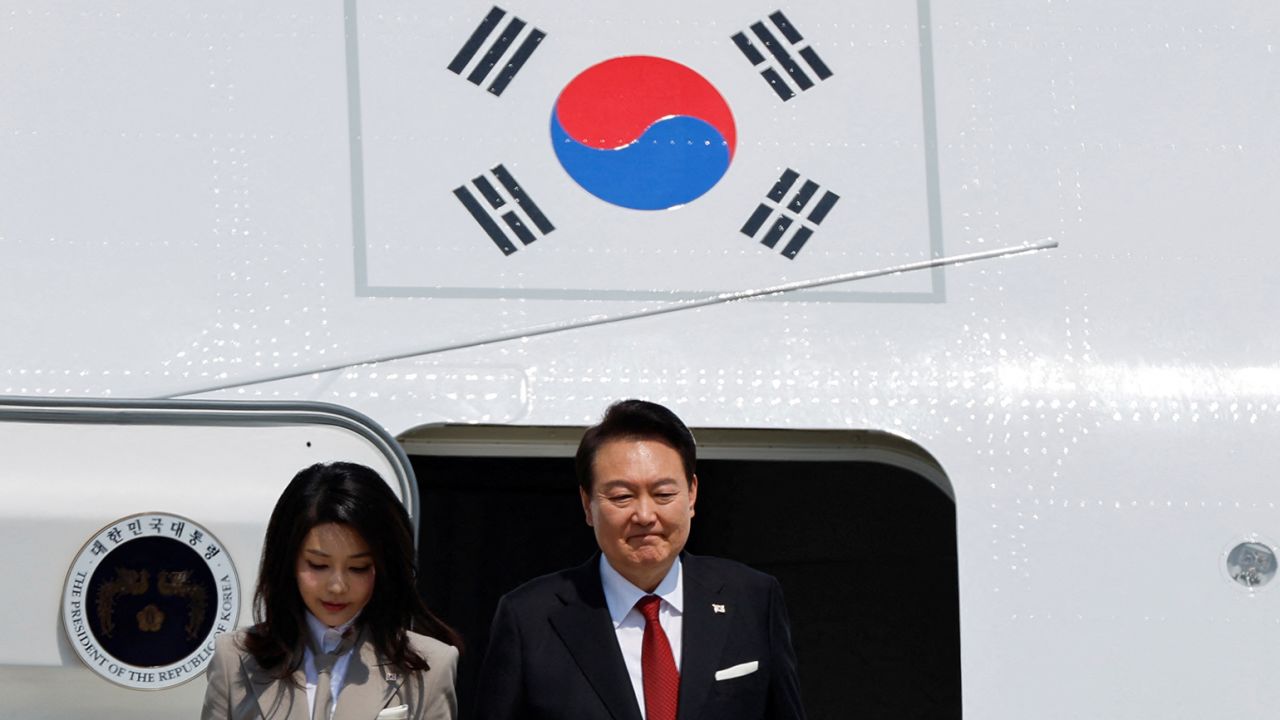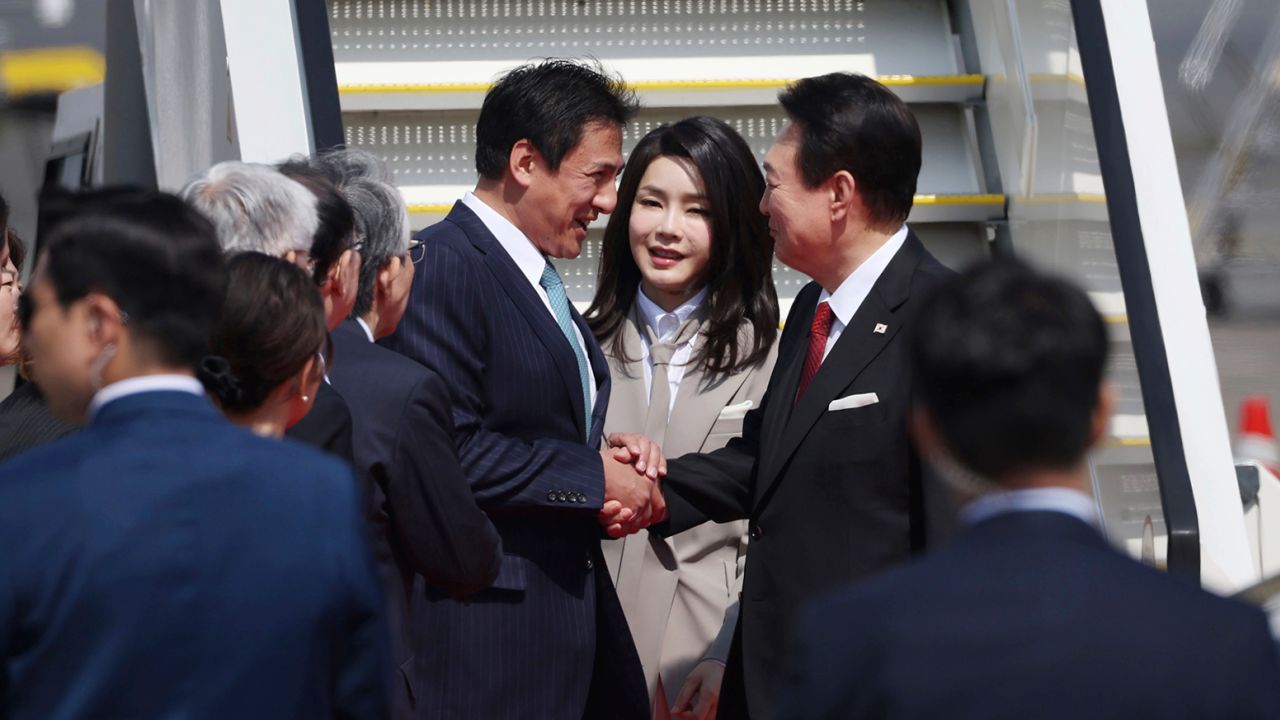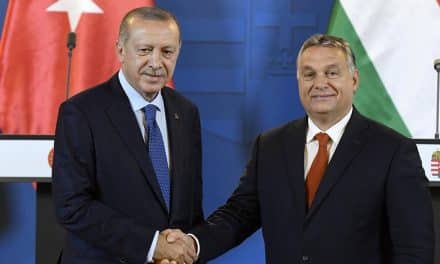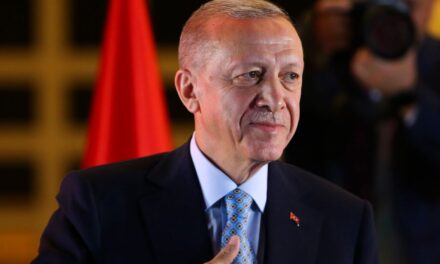South Korean President Yoon Suk Yeol arrived in Japan on Thursday for a summit aimed at mending relations between the two nations, marking the first visit of its kind in 12 years. The meeting comes as both countries face increasing security threats from North Korea and growing concerns over China’s assertiveness in the region.
Hours before Yoon’s arrival, North Korea launched a long-range ballistic missile into the waters off the east coast of the Korean Peninsula, the fourth such launch in less than a year. Japan’s Chief Cabinet Secretary Hirokazu Matsuno condemned the launch, describing it as a “reckless act” that threatens regional and international peace and security.
The summit between Yoon and Japanese Prime Minister Fumio Kishida is seen as a crucial step toward repairing ties that have been strained by decades of disputes and mistrust. Yoon’s office has described the meeting as “an important milestone” in the development of bilateral relations.
Historical disputes between the two nations, particularly those related to Japan’s colonial occupation of the Korean Peninsula and the use of forced labor and “comfort women” sex slaves, have long hindered diplomatic efforts. However, the urgency of regional security concerns, such as North Korea’s missile tests, China’s military posturing, and tensions in the Taiwan Strait, has driven the two countries to seek cooperation.
The improvement in relations between Japan and South Korea is seen as welcome news in Washington, which has been advocating for closer ties between its two key Asian allies. US Ambassador to Japan Rahm Emanuel highlighted the importance of the trilateral partnership in countering threats from North Korea and China.

South Korea recently announced a compensation plan for victims of forced labor during Japan’s colonial rule, which has helped to ease tensions between the two nations. The plan involves a public foundation funded by private Korean companies, rather than asking Japanese firms to contribute to reparations.
In recent months, both countries have signaled their willingness to move past historical disputes and work together on shared challenges. Yoon and Kishida have engaged in numerous diplomatic activities aimed at strengthening bilateral ties and deepening cooperation with the United States. The closer alignment of the US, Japan, and South Korea has alarmed China, which sees the strengthening partnership as part of Washington’s efforts to contain its development.





